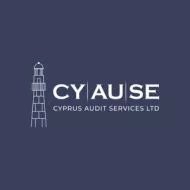- within Corporate/Commercial Law topic(s)
- in United States
- with readers working within the Media & Information industries
- within International Law, Immigration and Law Department Performance topic(s)
How does it work?
If you want to establish a business in Cyprus, you have two choices of doing so. Either individually or by setting up a company. If you decide to trade as a physical person, then you will be called a "self-employed" person. If, however you decide to trade via a company then you will either be the director of that company and /or the shareholder of the company as well. We will explain the differences below. It is important to understand that a self-employed person trades using himself / herself as the business vehicle whilst a person who uses a company uses a company to contact the business for himself / herself.
SELF EMPLOYED PERSON - WHAT DOES IT MEAN?
A self-employed person is an individual who contacts any business directly; i.e. without using a company.
A self-employed person can be and effectively must be:
- VAT Registered
- Income Tax Registered
- An employer
- Do what the company does
- And many more.
So why isn't everyone trading as a self-employed person? For two main reasons:
- Legal Protection
- Tax Purposes
To fully understand these two reasons, we must firstly understand what the company stands for.

COMPANY - WHAT DOES IT MEAN?
A company is a separate legal entity from the individual who owns it (i.e. the shareholder) therefore under the "eyes" of law the company is responsible for the below and NOT the person who owns it.
Company is responsible for:
- VAT compliance
- Income Tax compliance
- Registrar compliance
- Social Insurance Compliance
- Litigation, trade law etc.

So effectively the company stands as a shield in front of its owners and it is the legal vehicle which represents its owners, directors and trade business. The law and local governmental departments will know and hold accountable this legal vehicle and not its owners (some exemptions apply).
In addition, a company offers the flexibility to:
- Raise capital
- Increase the number of shareholders
- Have other people responsible for running the business
- Be licensed (certain bodies do not license individuals)
- And many more.
Conclusion:
The main difference between a self-employed person and a company is the legal framework that could protect the owners of the company and the taxation which varies as follows:
Both the company and the self-employed person are taxed on their taxable profits (not turnover) but the Company is being taxed at a flat Corporation Tax Rate of 12.5% whilst the self- employed person at the income tax rate brackets outlined below:
| FROM (€) | FROM (€) | TAX |
|---|---|---|
| 0 | 19,500 | 0% |
| 19,500 | 28,000 | 20% |
| 28,000 | 36,300 | 25% |
| 36,300 | 60,000 | 30% |
| over 60,000 | 35% |
COMPANY VS SELF EMPLOYED - SUMMARY OF DIFFERENCES
Main differences between a company and a self-employed persons
Responsibility against the law
The company and its directors and not the owners of the company are liable in the event of wrong doing with any of the authorities. In the event of the self-employed person, this person is fully liable against the law.
Taxation
A company pays less taxation than a self-employed individual if its taxable profit is between: Euro 30,000 - Euro 60,000.
Filing Requirements
A self-employed person may have as much filing requirements as a company if its turnover exceeds Euro 70,000.
This is because audited financial statements should accompany the self-employed person's tax return which is a requirement for all Cyprus companies.
Different Social Insurance Payments
A company has employees and pays on top of its salaries 11.5% for Employers' Social Insurance. The self-employed person has the same but the individual himself also pays social insurances quarterly at predetermined tax rates.
Ownership
The company can easily be owned by various parties via the introduction of share issue of capital, a simple and fast process. On the contrary the self-employed person cannot have new owners. Rather if there is such a need a partnership or a company must be formed to cover this gap.
USEFUL INFORMATION
PAYROLL CALCULATORS
Use Cyprus Payroll Calculators:
Other Useful Calculators:
About Us
CYAUSE Audit Services has extensive experience in the insurance industry has helped tens of insurance brokers and agents register and get licensed by the local Cyprus regulator granting them passporting access to the rest of the European Union.
CYAUSE Audit Services is an Audit & Assurance firm with offices in Cyprus and the UAE. During 2015 we have been awarded by I.C.P.A.C and the A.C.C.A (local and international association of Chartered Certified Accountants) for the Quality of our Audit Services and our Office's Procedures.
Being a Truly International Audit & Assurance firm, we have associates from all over the world and we are constantly looking for new associates to expand our network further. At present, CYAUSE Audit Services operates internationally through its membership with BKR International amongst the largest American associations in the world, Accace Circle, a co-created business community of like-minded BPO providers and advisors who deliver outstanding services with elevated customer experience. Our network covers almost 40 jurisdictions with over 2,000 professionals, it supports more than 10,000 customers, mostly mid-size and international Fortune 500 companies from various sectors, and processes at least 170,000 payslips globally.
CYAUSE Audit Services Ltd is also a member of BKR International one of the biggest US Accounting Associations of the word and the 3E Accounting Network, an international accounting network which originates from Hong Kong and has more than 80 members from all over the world.
Learn More about Cyprus Corporate Environment
Information about CYAUSE Audit Services and the Cyprus Corporate & Tax System can be obtained from our Website or our YouTube channel which provides valuable information about the Corporate & Tax Environment of Cyprus.
The content of this article is intended to provide a general guide to the subject matter. Specialist advice should be sought about your specific circumstances.


